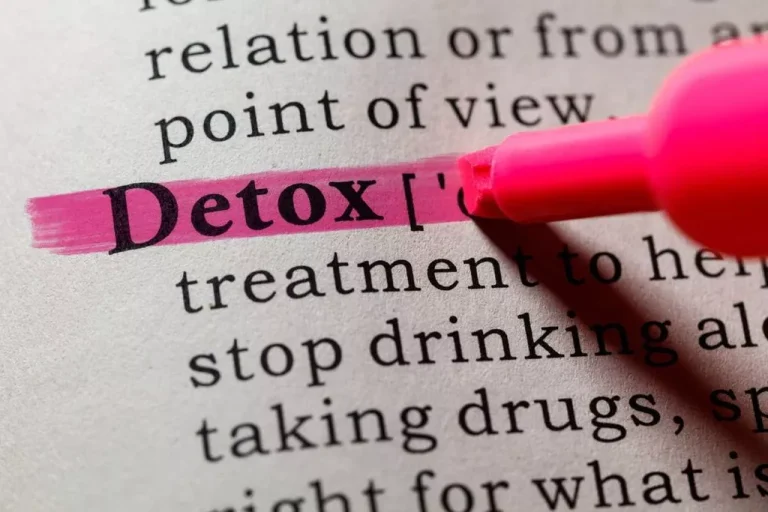
Little is known about narcissism and drinking in college students, a population that is at high risk for alcohol-related problems. No studies examined associations between narcissism and alcohol problems, problem expectancies, problem evaluation and readiness to change. Covert narcissists may engage in manipulation and other toxic behaviors to get their way and get the desired feedback to support their self-image, just as overt narcissists do. This article discusses covert narcissist traits and how to handle someone who has them. It also explains the difference between covert and overt (apparent or obvious) narcissism and what to do if you suspect you are involved with a covert narcissist. Even though NPD isn’t a personal choice, you don’t have to tolerate narcissistic abuse.

What Is the Difference Between Covert Narcissist And?
- This is one of the reasons why they try to control everyone around them through passive manipulation—as long as they can maintain an environment they’ve cultivated in order to get their needs met, they’ll feel safe and secure.
- Transitioning from the behavioral patterns of communal narcissists, the impact of covert versus communal narcissists sheds light on distinct manipulative tactics and self-serving behaviors exhibited by these individuals.
- Because their need for self-importance reigns supreme, covert narcissists will do whatever they need to do in order to keep the focus on themselves.
- A 2020 study from Germany [5] showed that those with vulnerable (covert) narcissism are prone to suppressing their emotions, leading to distress including depressive disorders and anxiety.
However, without affirmation, the same individual may feel depressed and ashamed. Therefore, the presence or absence of external validations of their value determines whether a person may have the traits of grandiose narcissism or vulnerable narcissism. A 2018 study found that people with personality disorders were more likely to have AUD at https://ecosoberhouse.com/ some point in their lives. Understanding these behavioral patterns is crucial in recognizing and addressing narcissistic traits in relationships. It’s like navigating a minefield, where every step must be taken with caution and awareness. A covert narcissist may appear charming on the surface but lack genuine empathy or concern for others.
Narcissistic personality disorder

But some people with covert narcissism do engage in actions that can be considered manipulative and toxic. Covert narcissistic abuse refers to a subtle pattern of controlling, manipulative, and hurtful behaviors performed by someone who lives with narcissistic personality disorder (NPD). By understanding the dynamics at play and implementing coping strategies, individuals can protect themselves and their relationships from the damaging impact of covert narcissistic abuse. In a relationship with someone with Borderline Personality Disorder, the behavior of covert vs communal narcissists varies.
- When a person has two conditions, the best option is often to treat the two conditions simultaneously.
- In his book, The Narcissist You Know, Joseph Burgo includes the “Addicted Narcissist” as one type of Extreme Narcissism.
- A loved one’s drinking and selfish behavior can be devastating and cause a great deal of pain and disappointment.
What are the 4 stages of a covert narcissistic relationship?

These co-occurring mental health conditions can make it particularly challenging for clinicians, let alone friends and family, to pinpoint where the problems stem from. Other people have experienced narcissistic abuse and have also overcome the emotional pain that comes from it. Covert narcissists may often engage in gaslighting because it’s a subtle way of manipulating others without making it too obvious. In covert narcissistic alienation, subtle manipulation tactics are employed to alienate the child from the targeted parent. The alienating parent may utilize various strategies to achieve this, such as guilt-tripping, gaslighting, and emotional manipulation, ultimately turning the child against the targeted parent.

The narcissist will lavish them with love and attention (aka “love bombing”) and take on traits that the person loves most. In essence, they become their dream lover, and thus encourage their target to leave their current situation and be with them instead. If you’re trying to determine whether you’re in a relationship with an introverted narcissist, find out about your partner’s past. If they have some sort of relationship with said person, they’ll keep referring back to that action for years in an attempt to wound the perpetrator (in their eyes) and hopefully make them feel bad for causing them pain.
Grandiose Narcissism and Alcohol Outcomes
I turned to Craig Malkin, a therapist and author of Rethinking Narcissism (and a Psychology Today blogger), for answers to the question of how to deal with someone who has addiction and narcissism issues. “When someone has narcissistic personality disorder and a substance abuse problem,” he said, “it’s not enough for them to beat their drug addiction; they also have to beat their addiction to feeling special.” People with covert narcissism share many of these traits covert narcissism and alcoholism and, as a result, may have difficulty developing and maintaining relationships. However, instead of arrogance and self-importance, covert narcissists are often shy and withdrawn. They also may appear to focus attention on others when it’s actually attention they seek for themselves. Both overt and covert narcissists need to meet the same clinical criteria to be diagnosed with narcissistic personality disorder, whether they are extroverted or introverted.
Like the overt narcissist, the covert narcissist fails to develop emotional empathy, self-awareness, or a stable sense of identity and self-esteem in childhood. Others may develop eating disorders as both control and energy release (e.g. exercise bulimia). In some rare cases, especially if the child has either vulnerable narcissist or borderline personality disorder traits themselves, they may even attempt to end their lives to escape from the never-ending torment they’re enduring.
Through subtle signs like constant need for admiration and exploitation of others, skilled therapists can identify these traits. Seeking professional therapy is crucial to navigate the complexities of managing these traits and fostering personal growth. It’s essential to create a safe space where both partners can express their thoughts and emotions openly without fear of judgment. Acknowledging each other’s feelings and viewpoints can help build trust and strengthen the foundation of the relationship. Educating ourselves about narcissism and BPD aids in understanding the dynamics at play, empowering us to make informed decisions about the relationship’s future.
- Covert narcissists may engage in manipulation and other toxic behaviors to get their way and get the desired feedback to support their self-image, just as overt narcissists do.
- Therefore, the presence or absence of external validations of their value determines whether a person may have the traits of grandiose narcissism or vulnerable narcissism.
- At Step 2 the types of narcissism, vulnerable and grandiose, were simultaneously entered into the model.
- These signs highlight how individuals with covert narcissistic traits may use addiction as a means to fulfill their need for validation, control, and superiority while masking their insecurities and lack of empathy.
Deprecated: Function get_magic_quotes_gpc() is deprecated in /var/www/qosmotec/staging/html/wp-includes/formatting.php on line 4826